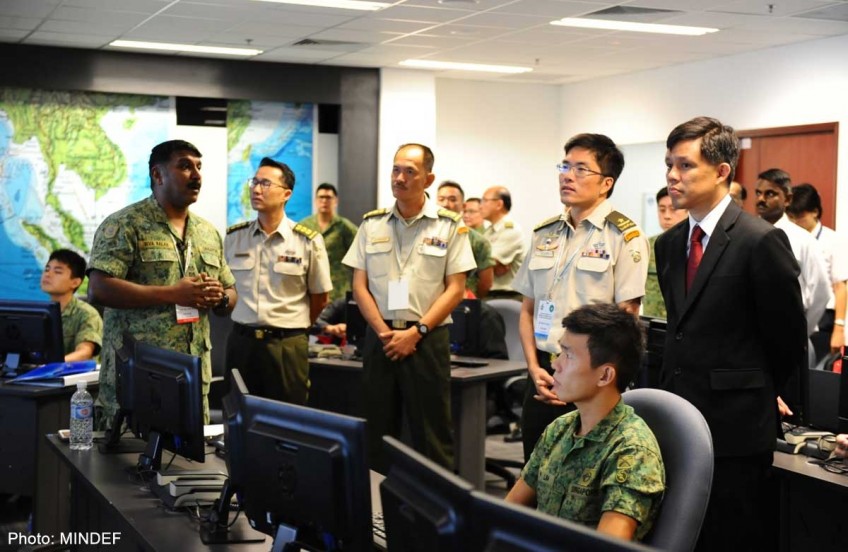Regional disaster centre starts work to sharpen military response

The centre, based in the Changi Command and Control Centre, will not just collate and share information among its partners but also take the decision deploying a response team within 48 hours of a disaster to ground zero.

Get the full story from The Straits Times.
Here is the statement from SAF:
SAF working with partner militaries to strengthen disaster relief coordination
The Singapore Armed Forces and the United States' Centre for Excellence in Disaster Management and Humanitarian Assistance co-hosted a Regional Conference on "Building Civil-Military Capacity for Disaster Relief Operations" from Sep 11 to 12 in Singapore. The Conference provided an opportunity for over 100 senior representatives from regional militaries, national disaster focal points from ASEAN countries, United Nations agencies, non-governmental and private sector organisations to exchange lessons learned from recent disaster relief operations, as well as discuss the roles of militaries and how civil-military coordination could be further enhanced in Humanitarian Assistance and Disaster Relief (HADR) efforts.
Chief of Defence Force Lieutenant-General Ng Chee Meng delivered the opening address for the conference on Sep 11 and Second Minister for Defence Mr Chan Chun Sing officiated at the closing ceremony of the Regional Conference.
In his closing address, Mr Chan stressed the need to build disaster response capabilities in concrete and practical ways and to do more as a region to strengthen coordination among militaries for disaster response. In that vein, Mr Chan highlighted that the Changi Regional HADR Coordination Centre (RHCC) hosted in Singapore hoped to contribute towards a more effective regional response to disasters by facilitating military-to-military coordination in disaster response. Mr Chan said, "The RHCC seeks to facilitate military-to-military coordination in disaster response, by supporting an Affected State's military in coordinating the foreign military assistance provided and liaising with disaster response stakeholders." In doing so, the RHCC would "seek to support and coordinate seamlessly with existing coordination mechanisms like the AHA Centre and the UN Office for the Coordination of Humanitarian Affairs."
Mr Chan noted that the RHCC sought to enhance information sharing and operational coordination among militaries in support of a multinational military response via, firstly, its OPERA command and control information system; secondly, a network of international liaison officers and linkages with operations centres of regional militaries; and thirdly, a mobile coordination unit that could be forward deployed to support a disaster-stricken state's military in coordination efforts on the ground.
On the sidelines of the post conference reception, Mr Chan also marked the commencement of the RHCC's initial operations at the Changi Command and Control Centre, with the unveiling of the RHCC logo. Mr Chan was also joined by conference speakers and participants for an inaugural tour of the RHCC, where representatives from the Singapore Armed Forces briefed the visitors on the RHCC's envisaged capabilities.